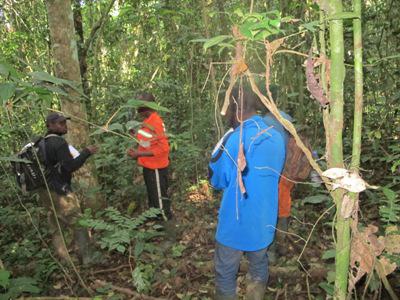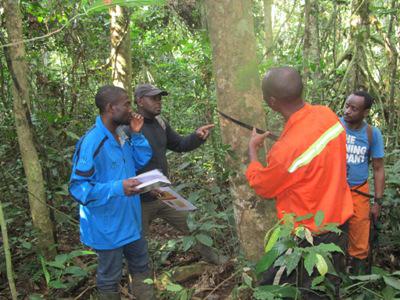Roger Bruno Tabue Mbobda
Assess the floristic diversity of the eastern part of the Dja Wildlife Reserve and estimate the amount of carbon it currently contains.

The Dja Reserve has experienced some research in the last couple of years, mostly focusing in the northern, southern and western parts, but the floristic resources and the .state of the wildlife habitat are still poorly known. The topography of the eastern part is mostly hilly and it would not be surprising that its flora is slightly different from other parts .In addition to understanding the flora of this region, we also intend to estimate the amount of carbon stored in this part of the reserve.

The specific objectives therefore will be to:
i) inventory and identify trees greater than or equal to 10 cm diameter within the eastern part of the reserve; ii) estimate the densities of arboreal populations
iii) establish a baseline carbon stocks currently sequestered.
Botanical Key will be used for species identification. For unidentified species, herbarium samples will be collected and sent to the National Herbarium in Yaounde for identification. The materialization of transects will be done by using the forest navigation equipment’s (GPS, compass). A tape will be used to measure the diameter at breast height (dbhf of trees inventoried). We will use the software ArcGIS, and GPS for the development of distribution maps and transects of the study area. Compass and GPS for the realization of transects. The data collected will be compiled using the Ms Excel software and another. The estimation of above ground carbon stocks will be done by using allometric equations of Chave et al (2005) and Brown et al (1997.)
At the end of this work, the expected results include:
- an established list of identified species;
- the calculation of structural parameters such as basal area, species diversity indices, species richness etc;
- information on the level of human impact and environmental degradation;
- baseline carbon stocks currently sequestered within the reserve.